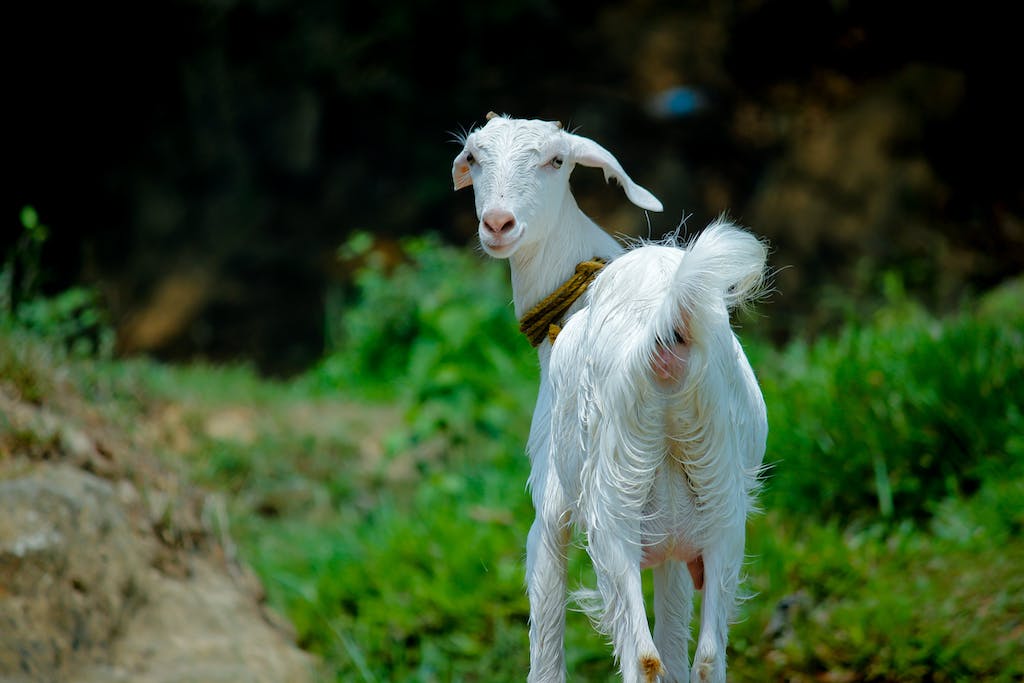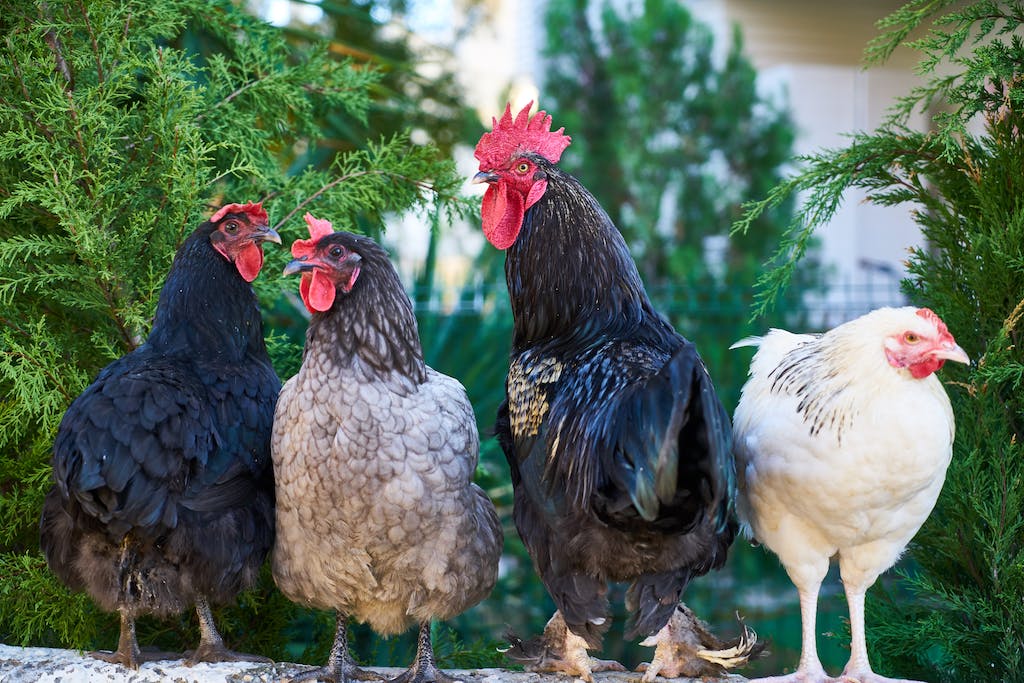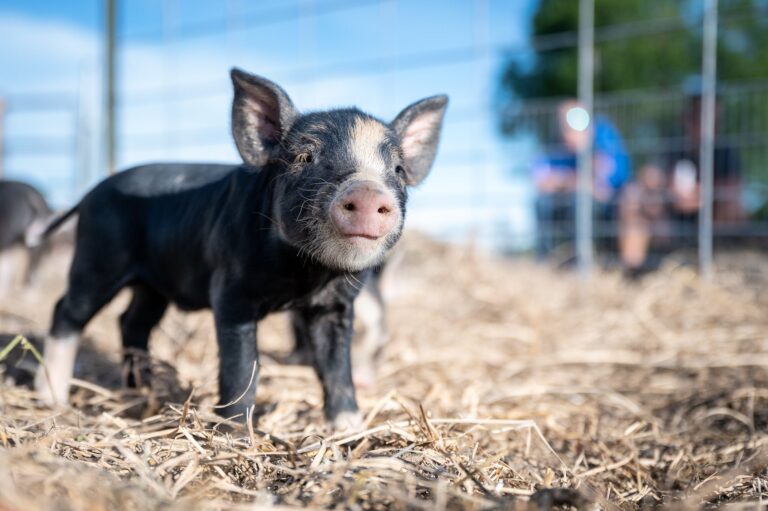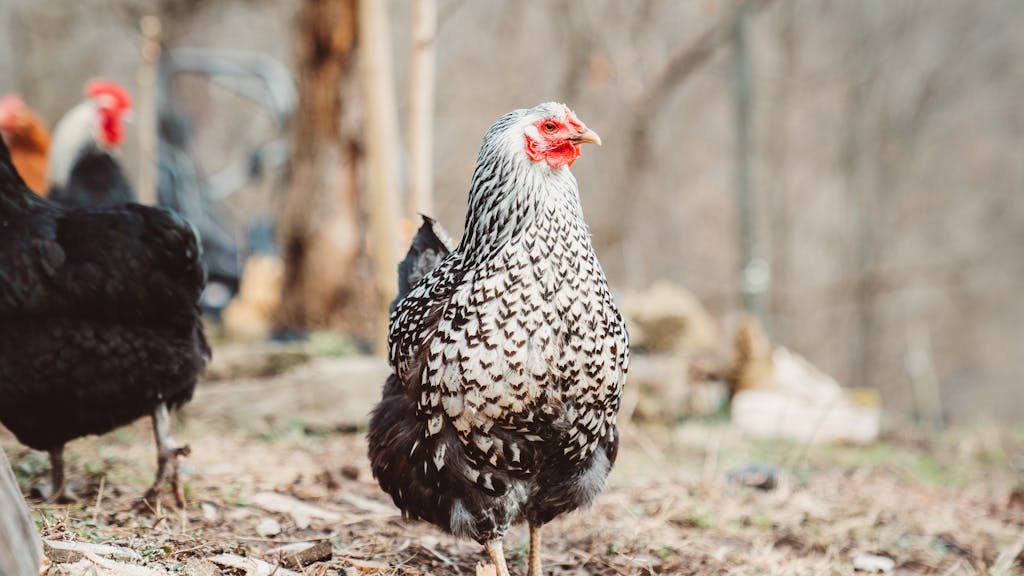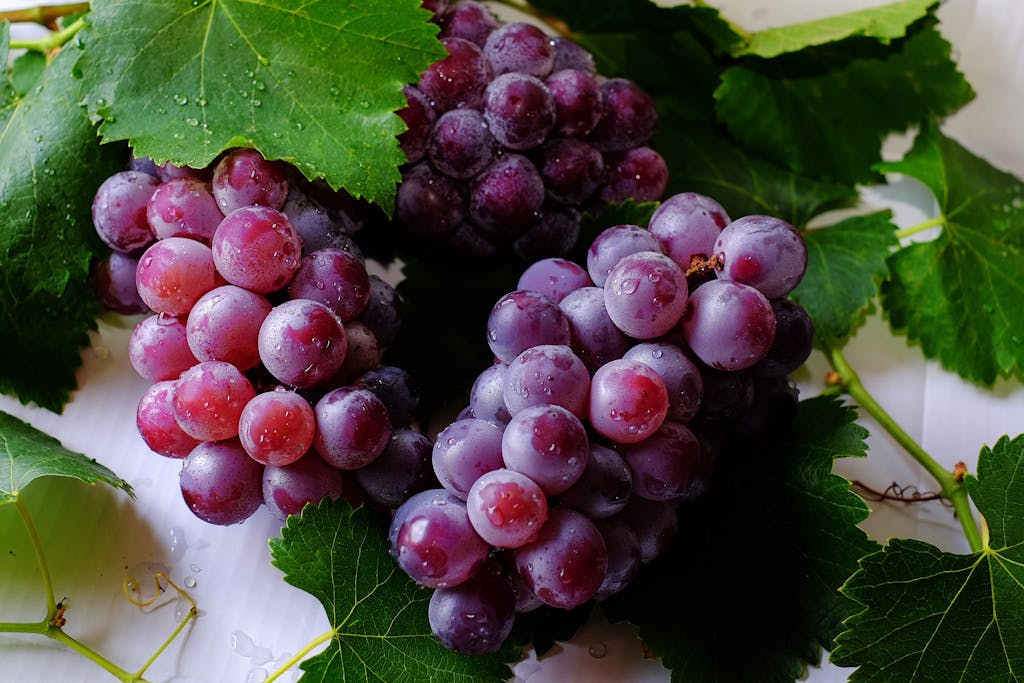Can Goats Eat Timothy Hay?
If you’re a goat owner, you’re likely aware of the importance of providing your animals with a balanced diet that meets their nutritional needs. One common item in a goat’s diet is hay, which can provide essential fiber and nutrients. Timothy hay is a popular choice for many livestock owners, but you may be wondering if it’s safe for your goats to eat.
The short answer is yes, goats can eat timothy hay. In fact, it’s often recommended as part of a balanced diet for these animals. Timothy hay is a good source of fiber and can help keep your goats’ digestive systems healthy. However, as with any food, it’s important to ensure that your goats are eating timothy hay in moderation and as part of a balanced diet.
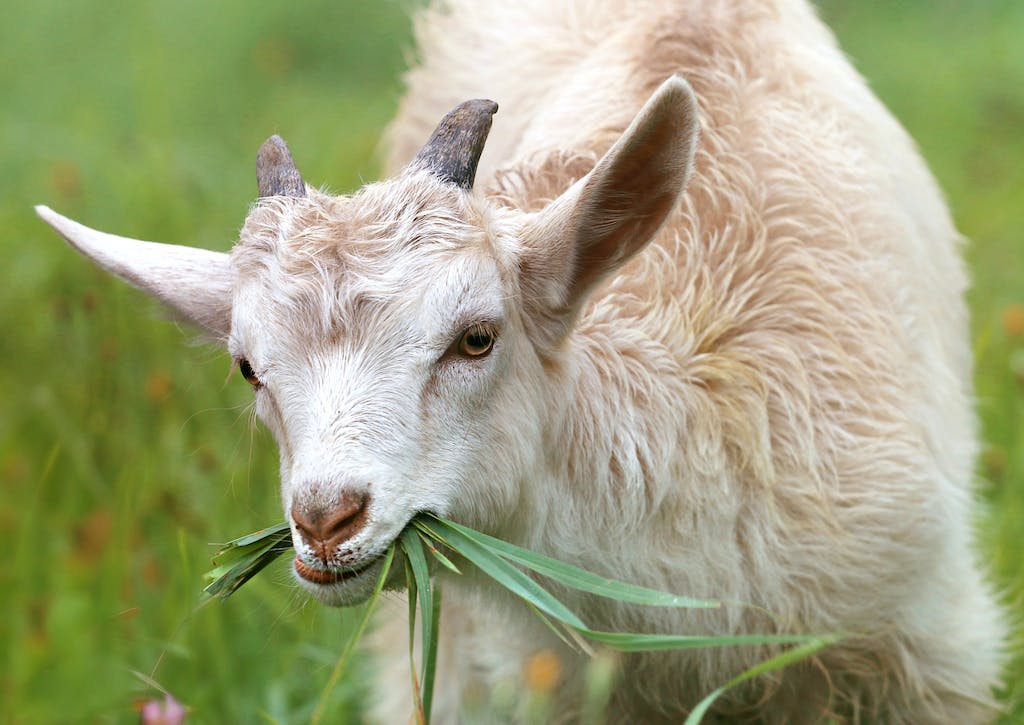
Understanding Goat Nutrition
Essential Nutrients and Dietary Needs
As a goat owner, it is essential to understand the nutritional needs of your goats to ensure their overall health and well-being. A balanced diet is crucial, and it should include all the essential nutrients that goats require. These nutrients include carbohydrates, protein, fats, vitamins, and minerals.
Goats are ruminants, which means they have a four-chambered stomach designed to break down fibrous plant material. They require a diet high in fiber, and hay is an excellent source of this. However, hay alone cannot provide all the essential nutrients that goats need to stay healthy.
The Role of Hay in a Goat’s Diet
Hay is an essential component of a goat’s diet. It provides the necessary fiber that aids in digestion and keeps the rumen functioning correctly. Timothy hay is one of the most common types of hay fed to goats. It has a high fiber content and is low in protein, making it an excellent choice for goats that need to maintain their weight.
While hay is an essential component of a goat’s diet, it should not be the only food source. Goats need a balanced diet that includes other feed sources, such as grains, legumes, and fresh greens. It is also crucial to provide your goats with access to fresh, clean water at all times.
Understanding goat nutrition is crucial for maintaining the health and well-being of your goats. Providing your goats with a balanced diet that includes all the essential nutrients they need is essential. Hay is an essential component of a goat’s diet, but it should not be the only food source. By providing your goats with a balanced diet, you can ensure that they stay healthy and happy for years to come.
Types of Hay for Goats
When it comes to feeding goats, hay is an essential part of their diet. Hay provides goats with the necessary fiber, protein, and nutrients they need to stay healthy. However, not all hay is created equal, and it’s important to understand the different types of hay available and their nutritional value.
Comparing Timothy Hay to Other Varieties
Timothy hay is a popular choice for goats because of its high fiber content and low protein levels. It’s a grass hay that is low in calories and ideal for overweight or inactive goats. However, there are other types of hay that are also suitable for goats, such as alfalfa hay and orchard grass.
Alfalfa hay is a legume hay that is higher in protein and calcium than grass hay. It’s a good choice for pregnant or lactating goats, as well as young goats that are still growing. However, alfalfa hay is also higher in calories and can cause weight gain if fed in excess.
Orchard grass is another type of grass hay that is similar to timothy hay in terms of its nutritional value. It’s a good choice for goats that are active and need more calories in their diet. However, it’s important to note that orchard grass can be more expensive than timothy hay.
Legume vs Grass Hay
In addition to the different types of hay available, there are also two main categories of hay: legume and grass hay. Legume hay, such as alfalfa hay, is higher in protein and calcium than grass hay. It’s a good choice for goats that need more protein in their diet, such as pregnant or lactating goats or young goats that are still growing.
Grass hay, such as timothy hay and orchard grass, is lower in protein and higher in fiber than legume hay. It’s a good choice for goats that are overweight or inactive and need to maintain a healthy weight. However, it’s important to note that grass hay may not provide enough protein for goats that are growing or producing milk.
Understanding the different types of hay available and their nutritional value is essential for providing your goats with a healthy and balanced diet. Whether you choose timothy hay, alfalfa hay, or orchard grass, make sure to feed your goats the appropriate amount based on their age, weight, and activity level.
Benefits of Timothy Hay for Goats
When it comes to feeding goats, good hay is an essential component of their diet. Timothy hay is an excellent choice for goats as it provides several benefits that contribute to their overall health and well-being.
Nutritional Content of Timothy Hay
Timothy hay is rich in essential nutrients that are vital for goats. It contains a high level of fiber, which is essential for proper digestion and helps prevent digestive problems such as bloating and constipation. It is also an excellent source of protein, which is necessary for muscle growth and repair.
In addition to fiber and protein, timothy hay is also rich in vitamins and minerals that are essential for maintaining good health. It contains high levels of calcium, which is essential for strong bones and teeth, and potassium, which helps regulate blood pressure and supports proper muscle function.
Preventing Health Problems
One of the most significant benefits of feeding goats timothy hay is its ability to prevent health problems such as urinary calculi. Urinary calculi is a condition that occurs when minerals in the urine form crystals, which can block the urinary tract and cause serious health problems.
Timothy hay is low in calcium and high in phosphorus, which helps prevent the formation of urinary calculi. It also has a balanced calcium-to-phosphorus ratio, which is essential for maintaining good urinary tract health.
Feeding goats good quality timothy hay can also help prevent other health problems such as respiratory issues and digestive problems. It is essential to ensure that the hay is of good quality and free from mold, dust, or other contaminants that can cause health problems.
Feeding goats timothy hay provides several benefits that contribute to their overall health and well-being. It is essential to ensure that the hay is of good quality and free from contaminants to prevent health problems. By including timothy hay in their diet, you can help ensure that your goats stay healthy and happy.
Feeding Practices for Goats
When it comes to feeding goats, there are a few important factors to consider. In this section, we’ll cover how much hay to feed and the differences between free-choice feeding and scheduled feeding.
How Much Hay to Feed
The amount of hay you should feed your goats depends on their body weight. As a general rule of thumb, goats should eat about 2-4 pounds of hay per day per 100 pounds of body weight. This means that a 100-pound goat should eat about 2-4 pounds of hay per day, while a 200-pound goat should eat 4-8 pounds of hay per day.
It’s important to note that hay should make up the majority of a goat’s diet. While some grain can be included, it should not make up more than 10% of their diet. It’s important to choose high-quality hay that is free from mold, dust, and other contaminants.
Free-Choice Feeding vs Scheduled Feeding
There are two main methods of feeding goats: free-choice feeding and scheduled feeding. Free-choice feeding involves providing goats with unlimited access to hay throughout the day. This method is often preferred by goat owners because it allows goats to eat as much as they need, which can help prevent overeating and other health issues.
Scheduled feeding, on the other hand, involves providing goats with a set amount of hay at specific times throughout the day. This method can be useful for goats that are prone to overeating or for those that need to be monitored closely for health reasons.
Ultimately, the feeding method you choose will depend on your personal preferences and the needs of your goats. It’s important to monitor your goats’ weight and overall health to ensure that they are getting the proper amount of hay and nutrients in their diet.

Special Considerations for Different Goats
When it comes to feeding goats, it’s important to take into consideration the specific needs of each individual goat. Different goats have different nutritional requirements based on their age, sex, and purpose. Here are some special considerations for different types of goats:
Feeding Dairy Goats and Pregnant Does
Dairy goats and pregnant does have higher nutritional requirements than other goats. They require more protein, calcium, and phosphorus to support milk production and fetal development. Feeding them a diet high in quality hay, such as timothy hay, is essential to meeting their nutritional needs.
In addition to hay, dairy goats and pregnant does should also be fed a balanced grain ration. This ration should contain a mix of grains, such as corn, oats, and barley, as well as protein supplements, such as soybean meal. It’s important to provide them with access to clean water at all times.
Nutritional Needs of Baby Goats
Baby goats, also known as kids, have different nutritional requirements than adult goats. They require a diet high in protein, fat, and carbohydrates to support their growth and development. In the first few weeks of life, they should be fed colostrum, which is the first milk produced by the mother goat. Colostrum is rich in nutrients and antibodies that help the kid build a strong immune system.
After the first few weeks, kids can be transitioned to a diet of milk replacer and hay. Milk replacer should be formulated specifically for goats and should contain high levels of protein and fat. Timothy hay is a good choice for baby goats, as it is high in fiber and helps support their digestive health.
Feeding goats a diet that meets their specific nutritional needs is essential to keeping them healthy and productive. Dairy goats and pregnant does require a higher level of nutrition than other goats, while baby goats need a diet high in protein, fat, and carbohydrates to support their growth and development. Providing them with access to quality hay, such as timothy hay, is an important part of meeting their nutritional requirements.
Supplementing Goat Diets
If you’re looking to supplement your goat’s diet, there are a variety of options available to you. In this section, we’ll explore using pellets and minerals, as well as alternative feeds and supplements.
Using Pellets and Minerals
Pellets can be a great way to supplement your goat’s diet, as they are easy to store and can provide a balanced mix of nutrients. Alfalfa pellets are a popular choice, as they are high in protein and calcium, which are important for goats. Timothy pellets can also be used, but they are lower in protein and calcium than alfalfa pellets.
In addition to pellets, you may want to consider using a mineral supplement. Loose minerals can be added to your goat’s feed or provided in a separate feeder. Black oil sunflower seeds are also a good source of minerals, including selenium and zinc.
When selecting a mineral supplement, be sure to choose one that is specifically formulated for goats. Look for a product that contains the essential minerals your goats need, such as calcium, phosphorus, and magnesium.
Alternative Feeds and Supplements
If you’re looking for alternative feeds and supplements, there are many options available. Some popular choices include:
-
Hay: Timothy hay is a good source of fiber and can be used to supplement your goat’s diet. However, be sure to monitor your goat’s intake, as too much hay can cause digestive problems.
-
Grain: While grain can be used to supplement your goat’s diet, it should be used sparingly. Too much grain can cause digestive problems and lead to obesity.
-
Herbs: Some herbs, such as garlic and oregano, can be used to boost your goat’s immune system and improve overall health.
-
Vinegar: Adding a small amount of apple cider vinegar to your goat’s water can help improve digestion and prevent urinary tract infections.
When supplementing your goat’s diet, it’s important to do so in moderation. Too much of any one thing can cause health problems, so be sure to monitor your goat’s intake and make adjustments as needed.
Common Questions and Concerns
Addressing Myths About Goat Feeding
As a goat owner, you may have heard some myths about what goats can and cannot eat. One of the common myths is that goats can only eat one type of hay. However, this is not true. Goats can eat different types of hay, including timothy hay. In fact, timothy hay is a good choice for goats as it is low in protein and high in fiber, which is essential for their digestive health.
Another myth is that goats should not be fed hay that has been rained on or is moldy. While it is true that moldy hay can be harmful to goats, not all hay that has been rained on is moldy. Inspect hay before feeding it to your goats and remove any moldy or poor-quality hay.
Dealing with Moldy or Poor-Quality Hay
If you have moldy or poor-quality hay, it is best to dispose of it and find a new source of hay. Moldy hay can cause respiratory issues and other health problems for goats. Poor-quality hay may not provide the necessary nutrients that goats need to stay healthy.
When looking for good quality hay, consider factors such as the color, smell, and texture. Good quality hay should be green, smell fresh, and have a soft texture. You may also want to consider buying hay from a reputable supplier who can provide you with information about the hay’s nutritional value.
Goats can eat timothy hay and other types of hay. Inspect hay before feeding it to your goats and remove any moldy or poor-quality hay. When looking for good quality hay, consider factors such as color, smell, texture, and nutritional value. By following these guidelines, you can ensure that your goats receive the best possible nutrition.
Purchasing and Storing Hay
When it comes to feeding your goats, hay is a crucial component of their diet. Timothy hay is a popular choice for many goat owners due to its high fiber content. However, it’s important to ensure that you’re purchasing and storing hay properly to ensure its quality and freshness.
Finding Quality Hay Suppliers
There are several options when it comes to finding quality hay suppliers for your goats. Feed stores are a common choice, as they often carry a variety of hay types and bale sizes. Local farmers may also be a good option, as they may have high-quality hay available for purchase.
When selecting a hay supplier, it’s important to consider the quality of the hay they offer. Look for hay that is free of mold, dust, and other contaminants. High-quality hay should also be green and leafy, with minimal stem content.
Best Practices for Hay Storage
Proper hay storage is essential for maintaining the quality and freshness of your hay. When storing hay, it’s important to keep it dry and protected from the elements. Bales of alfalfa should be stored in a cool, dry place, away from direct sunlight.
To prevent mold and other contaminants from developing, it’s important to stack hay bales off the ground and in a well-ventilated area. You may also want to consider using a tarp or other covering to protect the hay from moisture.
By following these best practices for hay storage, you can ensure that your goats have access to high-quality, fresh hay throughout the year.

